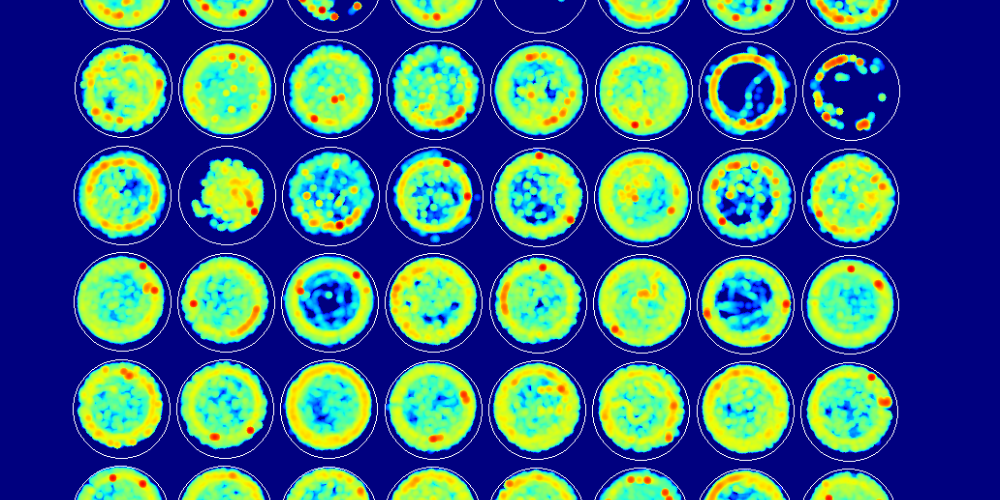Parkinson's disease (PD) is a common condition among the elderly. It is really impairing and dramatically reduces the quality of life in those who suffer it. People with PD typically display symptoms such as shaking at rest, slowness in movement, excessive muscle contraction, and abnormal posture. The mentioned symptoms pertain to a category known as motor symptoms because they affect the locomotor system.
However, PD also presents symptoms that affect other areas, such as cognitive alterations, emotional problems like anxiety, depression or apathy, and sleep alterations. Sleep problems are not necessarily produced by the disease itself, but by medication or by primary symptoms such as shaking and muscle rigidity. Moreover, sleep alterations can further contribute to impair cognitive performance and emotional stability. This relationship has been shown in several studies in which sleep deprivation (SD) caused emotional and cognitive impairments in humans and other animals.
A zebrafish PD model
To study human diseases it is usual to create models of the disease in animals that are easy to study in the laboratory. In the case of rats, the exposure to a drug called rotenone (an insecticide) creates PD-like symptoms (both motor and non-motor) and is considered to be a good model of the disorder. In the case of zebrafish, it was thought that exposure to the same drug would cause PD-like symptoms as well, becoming a new PD model. Moreover, generating SD in the fish is easy since exposure to constant light causes it.
After determining that, indeed, the exposure to rotenone in zebrafish lead to PD-like symptoms, Lv and colleagues decided to explore the relationship between PD and SD in zebrafish, and the effects on emotion and cognition.
ZebraLab helps evaluate SD in a zebrafish PD model
For the experiments, the team divided the zebrafish into four groups: non-exposed, only SD, only rotenone and rotenone+SD. They did this to be able to compare the groups between them and correctly attribute each effect to a factor.
To evaluate the locomotor activity of the zebrafish, the animals were placed in a tank where a video camera with ZebraLab software tracked their movements for 5 minutes. Movement distance and duration were automatically collected and analyzed. The animals, then, had to complete the object discrimination task to evaluate memory.

Finally, the light/dark box test was performed to evaluate emotion. In this case, the fish were also placed in a tank, but this one was divided into two equally sized partitions, one with black walls and the other with white walls. A barrier between the compartments allowed the fish to swim between them. The fish were placed in the white side and recorded for 6 minutes to evaluate the time taken to enter the dark side, time spent in the white side, and the number of crossings.
SD aggravates cognitive and emotional PD symptoms
The results indicated that zebrafish treated with rotenone did, indeed, show PD-like motor symptoms. However, sleep deprivation in rotenone-treated fish did not aggravate their motor symptoms.
Opposite to this finding, when they evaluated cognitive and emotional symptoms, they did find that sleep deprivation in rotenone-treated fish aggravated those symptoms.
In sum, what the team did was use a PD model of zebrafish to study if sleep deprivation caused an aggravation of the PD symptoms. They demonstrated that the PD model was valid because the zebrafish generated motor and non-motor symptoms after a four-week exposure to Rotenone. The symptoms included decreased exercise capacity, anxiety-depressed emotions, and memory impairment. If the fish were, then, sleep deprived, memory and emotion conditions worsened, while motor symptoms remained as they were.
In conclusion, the results obtained by the team are very important, because they validate the concept that sleep deprivation can contribute to an anxiety-depressed mood and to a decline in memory in PD. They open the door to further treatments targeting sleep disturbances in PD patients, because if normal sleep is restituted, emotion and memory symptoms may ameliorate, improving the quality of life in those patients. The study not only provides a future therapeutic target but also proves the validity of a new animal PD model, which may be used in future studies to continue with the important PD research.
How did our products improve the research?
Quality of life in PD patients is a very relevant topic and a lot of research is devoted to it. For this reason, findings such as the ones obtained in the present study are really important to increase our knowledge of the disorder and to foster research in the future. This study would have been much more difficult to conduct if it weren’t for the software used.
ZebraLab was key for the evaluation of the motor activity, memory and emotional behavior of zebrafish, i.e. the main outcomes of the research. The capacity of the software to continuously track each individual made possible to obtain very accurate parameters of distance and duration of swimming, as well as precise positions of each zebrafish at a particular time. Obtaining these results either by observation or recordings analysis would have been very inaccurate and time-consuming and would have introduced a lot of errors into the analysis. ZebraLab, thus, was fundamental for the success of the research.
References
Lv DJ, Li LX, Chen J, Wei SZ, Wang F, Hu H, Xie AM, Liu CF. (2019). Sleep deprivation caused a memory defects and emotional changes in a rotenone-based zebrafish model of Parkinson's disease. Behav Brain Res. 372:112031. doi: 10.1016/j.bbr.2019.112031
Related product
VisioBox, ZebraBox, and ZebraCube





